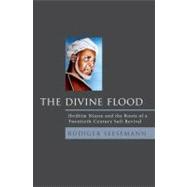The Divine Flood Ibrahim Niasse and the Roots of a Twentieth-Century Sufi Revival
, by Seesemann, Rudiger- ISBN: 9780195384321 | 0195384326
- Cover: Hardcover
- Copyright: 8/1/2011
Until recently, academic studies of Sufism have largely ignored the multiple ways in which Islamic mystical ideas and practices have developed in the modern period. For many specialists, Sufism was "on the way out" and not compatible with modernity. The present study of a twentieth-century Sufi revival in West Africa offers overdue corrections of this misconception. Seesemann's work evolves around the emergence and spread of the "Community of the Divine Flood," established in 1929 by Ibrahim Niasse, a leader of the Tijaniyya Sufi order from Senegal. Based on a wide variety of written sources and encounters with leaders and ordinary members of the movement, the book analyzes the teachings and practices of this community, most notably those concerned with mystical knowledge of God. It presents a vivid and intimate portrait of the community's formation in Senegal and its subsequent transformation into a flourishing transnational movement in West Africa and beyond. Drawing on letters, poetry, hagiography, and testimonies of opponents of the movement, the book traces Niasse's spectacular ascension as the widely acclaimed "Supreme Saint of His Era" and shows how the various stages of his career intersect with the development of his mystical teachings. Seesemann makes a compelling case for studying Sufis and their literary production in their social and historical contexts, throwing light on a little-known chapter of the intellectual and social history of Islam.






